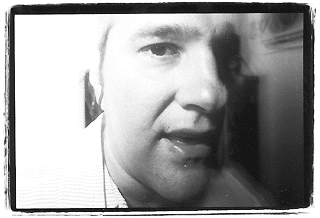https://www.austinchronicle.com/music/1998-05-29/523551/
Claude 9
May 29, 1998, Music
|
|
Claude 9 is among a handful of Austin electronic musicians who focus primarily on "drum and bass." As the esoteric stepchild of techno, drum and bass has its roots more deeply rooted in reggae and dub than techno itself. Ergo, it's a natural extension musically for Claude 9 (neé Claude McCan) whose history includes both Eighties dance music and reggae. Claude 9 melds techno and dub elements together to craft his own blend of ambient electronic and drum and bass. The result is an atmospheric, beat-heavy style that's well-showcased on last year's Face Records compilation, One - Texas Electronica, as well as the forthcoming 12-inch single, "Hear Ya!," which features local rapper MC Overlord on a swaying and spacey tune.
McCan's musical background spans the better part of the Eighties and Nineties with stints in local dance groups and Austin reggae bands like Raggamassive, with whom he still plays. In the Eighties, he collaborated on dance music with Patrick Keel, one of Austin's early denizens of ambient electronic music. Roughly a decade or so later, McCan discovered how computers "upped the level of what you could do musically" and rolled that into what is now Claude 9.
McCan's incarnation as Claude 9 has been going on for about two years with the focus on drum and bass coming about in the last year or so.
"Claude 9 was more of a trip-hop, ambient, downbeat thing, at first," notes McCan. "Then a couple of friends of mine started getting into jungle, which we all looked at as being the newest development of reggae."
Hardly the most accessible form of dance music, drum and bass varies from smooth melodies with syncopated jazz-like rhythms to heavy-duty break beats and thundering bass lines that can crack your tailbone. It can be sweet and mellow or loud and cacophonous. Either way, the dominant rhythm is quick and speedy, and a distinct departure from more traditional forms of dance music.
"Some people have a really odd reaction to it at first," McCan concedes. "But, I really got into it. I think it has the potential to move past club music and will appeal to the people who aren't really into the `four on the floor' beats."
McCan realizes that with electronic music, performers are in a "no-man's land" between being a DJ and being a live act, challenging both the musician's and the audience's concept of what should be happening on a stage. Yet as more people experience the music live, their perceptions begin to shift.
"People are getting used to the fact that you won't have a whole live band up there," says McCan. "But, I do try to make it a little mysterious as to what I'm actually doing." - Leah Selvidge
Copyright © 2024 Austin Chronicle Corporation. All rights reserved.

